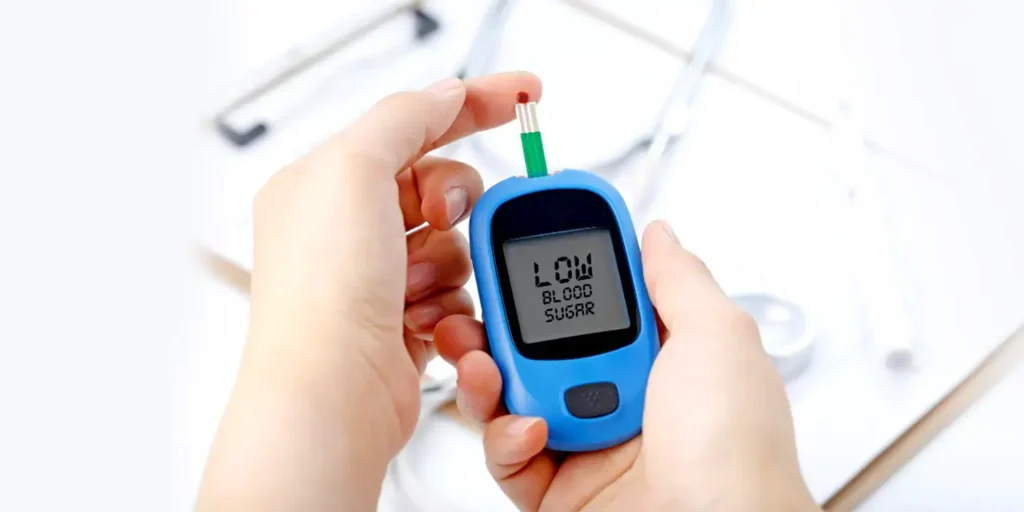Living with diabetes can be challenging, and one of the common symptoms experienced by many individuals is fatigue. Diabetes fatigue can significantly impact daily life, making it difficult to carry out tasks and enjoy activities. However, with the right treatment strategies, managing diabetes fatigue is possible. In this blog post, we’ll explore various approaches to combating diabetes-related fatigue and regaining energy and vitality.
Contents
What is Diabetes Fatigue?

Diabetes fatigue refers to the persistent and overwhelming feeling of tiredness or exhaustion experienced by individuals living with diabetes. It is a common symptom that can significantly impact daily life and overall well-being. While fatigue is a normal occurrence for everyone from time to time, diabetes-related fatigue tends to be more profound and may not improve with rest or sleep.
Several factors contribute to diabetes fatigue:
- Fluctuating Blood Sugar Levels: Unstable blood sugar levels, whether too high (hyperglycemia) or too low (hypoglycemia), can lead to feelings of fatigue. When blood sugar levels are elevated, the body may struggle to efficiently use glucose for energy, resulting in a lack of energy. Conversely, low blood sugar levels can also cause fatigue as the body lacks the necessary fuel to function optimally.
- Insulin Resistance: In type 2 diabetes, insulin resistance occurs when the body’s cells become less responsive to insulin, impairing glucose uptake. This can lead to elevated blood sugar levels and subsequent fatigue.
- Sleep Disturbances: Diabetes can disrupt sleep patterns, leading to poor-quality sleep or insufficient rest. Sleep disturbances, such as sleep apnea, can exacerbate fatigue and diminish overall energy levels.
- Lifestyle Factors: Poor diet, lack of physical activity, stress, and other lifestyle factors commonly associated with diabetes can contribute to fatigue.
Diabetes fatigue can manifest in various ways, including:
- Feeling excessively tired, even after a full night’s sleep.
- Difficulty concentrating or focusing on tasks.
- Reduced motivation or interest in activities.
- Increased irritability or mood changes.
- Physical weakness or lethargy.
Treatment Strategies for Diabetes Fatigue
Managing diabetes fatigue requires a multifaceted approach that addresses the underlying causes while promoting overall well-being. Here are some effective treatment strategies:
Physical Activity

Engaging in regular physical activity is an essential component of managing diabetes fatigue. Exercise offers numerous benefits for individuals with diabetes, including improved blood sugar control, enhanced insulin sensitivity, and increased energy levels. Here’s how physical activity serves as a treatment for diabetes fatigue:
Improved Blood Sugar Control:
- Physical activity helps lower blood sugar levels by increasing the body’s sensitivity to insulin, the hormone responsible for regulating blood glucose. When you exercise, your muscles use glucose for energy, which helps lower blood sugar levels.
- Regular physical activity can reduce insulin resistance, allowing glucose to enter cells more efficiently and preventing blood sugar spikes and crashes that contribute to fatigue.
Enhanced Energy Levels:
- Exercise stimulates the release of endorphins, neurotransmitters that promote feelings of well-being and reduce stress. Endorphins act as natural mood lifters, boosting energy levels and combating feelings of fatigue.
- Regular physical activity can improve cardiovascular health, increase muscle strength and endurance, and enhance overall physical fitness, leading to increased energy and vitality.
Weight Management:
- Physical activity plays a crucial role in weight management, which is important for individuals with diabetes, especially those who are overweight or obese. Excess weight can exacerbate insulin resistance and fatigue.
- Regular exercise helps burn calories and build lean muscle mass, promoting weight loss or maintenance. Achieving and maintaining a healthy weight can improve energy levels and overall well-being.
Better Sleep Quality:
- Regular physical activity can improve sleep quality and duration, which is essential for managing diabetes fatigue. Exercise helps regulate the sleep-wake cycle and promotes deeper, more restorative sleep.
- By reducing stress and anxiety levels, exercise can alleviate sleep disturbances and promote relaxation, leading to more restful sleep and increased daytime energy.
Stress Reduction:
- Exercise is a natural stress reliever that can help reduce feelings of anxiety, tension, and overwhelm. Chronic stress can contribute to fatigue and exacerbate symptoms of diabetes.
- Engaging in physical activity promotes the release of feel-good neurotransmitters like serotonin and dopamine, which can improve mood and mental well-being, reducing stress and fatigue.
Sleep Hygiene

Improving sleep hygiene is an essential aspect of managing diabetes fatigue. Sleep hygiene refers to a set of practices and habits that promote healthy sleep patterns and quality sleep. By implementing effective sleep hygiene strategies, individuals with diabetes can improve the quantity and quality of their sleep, thereby reducing fatigue and enhancing overall well-being. Here’s how sleep hygiene serves as a treatment for diabetes-related fatigue:
Establishing a Consistent Sleep Schedule:
- Aim to go to bed and wake up at the same time every day, even on weekends. Consistency helps regulate the body’s internal clock, promoting better sleep quality and overall energy levels.
- Set a regular bedtime routine to signal to your body that it’s time to wind down. Engage in relaxing activities such as reading, listening to calming music, or practicing relaxation techniques before bed.
Creating a Relaxing Sleep Environment:
- Make your bedroom conducive to sleep by keeping it cool, quiet, and dark. Consider using blackout curtains, earplugs, or white noise machines to block out disruptive sounds and light.
- Invest in a comfortable mattress and pillows that support proper sleep posture and alignment. Your sleep environment should be comfortable and inviting, promoting restful sleep.
Limiting Stimulants Before Bedtime:
- Avoid consuming stimulants such as caffeine, nicotine, and alcohol close to bedtime. These substances can interfere with sleep quality and disrupt the natural sleep cycle.
- Limit screen time from electronic devices (such as smartphones, tablets, and computers) before bed, as the blue light emitted can suppress melatonin production and interfere with sleep onset. Aim to turn off screens at least an hour before bedtime.
Stress Management
Managing stress is a crucial aspect of addressing diabetes-related fatigue. Chronic stress can exacerbate fatigue and impact blood sugar levels, making it challenging to manage diabetes effectively. By implementing stress management techniques, individuals with diabetes can reduce stress levels, improve overall well-being, and alleviate fatigue. Here’s how stress management serves as a treatment for diabetes fatigue:
- Deep Breathing Exercises: Deep breathing exercises, also known as diaphragmatic or belly breathing, can help activate the body’s relaxation response and reduce stress levels. Practice deep breathing by inhaling deeply through your nose, allowing your belly to expand, and exhaling slowly through your mouth. Repeat this process several times to promote relaxation and reduce tension.
- Mindfulness Meditation: Mindfulness meditation involves focusing your attention on the present moment without judgment. By practicing mindfulness meditation regularly, individuals can learn to observe their thoughts and emotions without becoming overwhelmed by them. This can help reduce stress levels and promote a sense of calm and inner peace.
- Progressive Muscle Relaxation (PMR): Progressive muscle relaxation is a technique that involves systematically tensing and relaxing different muscle groups in the body. By progressively relaxing muscle tension, individuals can release physical tension and promote relaxation. Practice PMR by tensing each muscle group for a few seconds and then releasing the tension, starting from your toes and working your way up to your head.
- Yoga: Yoga combines physical postures, breathing exercises, and meditation to promote relaxation and stress relief. Regular practice of yoga can help reduce stress levels, improve flexibility and strength, and promote overall well-being. Choose gentle yoga practices that focus on relaxation and stress reduction, such as restorative yoga or yoga nidra.
- Setting Boundaries and Prioritizing Self-Care: Establishing boundaries and prioritizing self-care is essential for managing stress and preventing burnout. Learn to say no to excessive commitments and prioritize activities that bring you joy and relaxation. Engage in hobbies, spend time with loved ones, and take breaks when needed to recharge and rejuvenate.
- Seeking Support: Don’t hesitate to reach out for support from friends, family members, or a healthcare provider when feeling overwhelmed by stress. Talking to others about your feelings and concerns can provide emotional support and perspective. Additionally, consider joining a support group for individuals with diabetes to connect with others who understand your experiences.
Medication Adjustment

Medication adjustment is an important aspect of managing diabetes fatigue, especially when other treatment strategies alone may not sufficiently alleviate symptoms. Here’s how medication adjustment can serve as a treatment for diabetes fatigue:
Optimizing Blood Sugar Control:
- If blood sugar levels are consistently outside of the target range despite lifestyle modifications, medication adjustment may be necessary. High blood sugar levels (hyperglycemia) can contribute to fatigue, while excessively low levels (hypoglycemia) can also cause tiredness and weakness.
- Healthcare providers may recommend adjusting the dosage or timing of diabetes medications, including oral medications or insulin, to achieve better blood sugar control. This may involve increasing or decreasing medication doses, switching to different formulations, or adding additional medications to the treatment regimen.
Addressing Insulin Resistance:
- In individuals with type 2 diabetes, insulin resistance is a common underlying factor contributing to elevated blood sugar levels and fatigue. Medications that improve insulin sensitivity, such as metformin or thiazolidinediones (TZDs), may be prescribed to help address insulin resistance and improve energy levels.
- Additionally, healthcare providers may consider medications that target specific mechanisms involved in insulin resistance, such as sodium-glucose cotransporter-2 (SGLT2) inhibitors or glucagon-like peptide-1 receptor agonists (GLP-1 RAs).
Managing Coexisting Conditions:
- Diabetes often coexists with other health conditions, such as hypertension, dyslipidemia, or depression, which can contribute to fatigue. Healthcare providers may adjust medications for these conditions to optimize overall health and well-being.
- For example, managing hypertension with appropriate antihypertensive medications can improve cardiovascular health and energy levels. Similarly, treating depression with antidepressant medications or psychotherapy can alleviate symptoms of fatigue and improve mood.
Conclusion
Diabetes-related fatigue can significantly impact quality of life, but it doesn’t have to be a constant struggle. By implementing a comprehensive approach that addresses blood sugar management, physical activity, sleep hygiene, stress management, and medication optimization, individuals with diabetes can effectively combat fatigue and regain energy and vitality. Remember, consistency and diligence are key to successfully managing diabetes fatigue and achieving overall well-being.
Do you want to get rid of diabetes? Join our online diabetes treatment program and reverse Diabetes naturally through lifestyle changes such as a Personalized Diet plan, Exercise, Yoga, dieticians, and health coaches.

